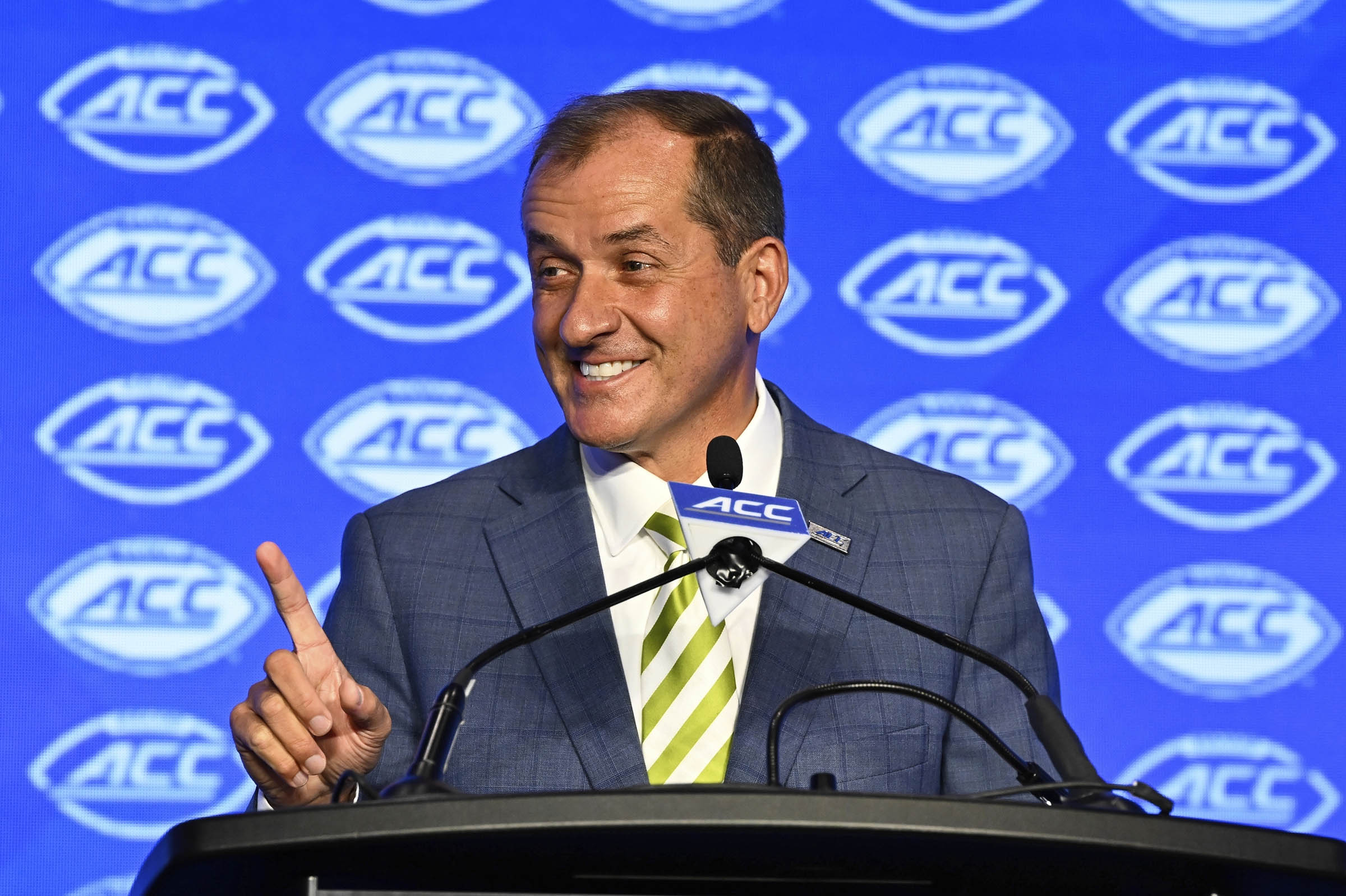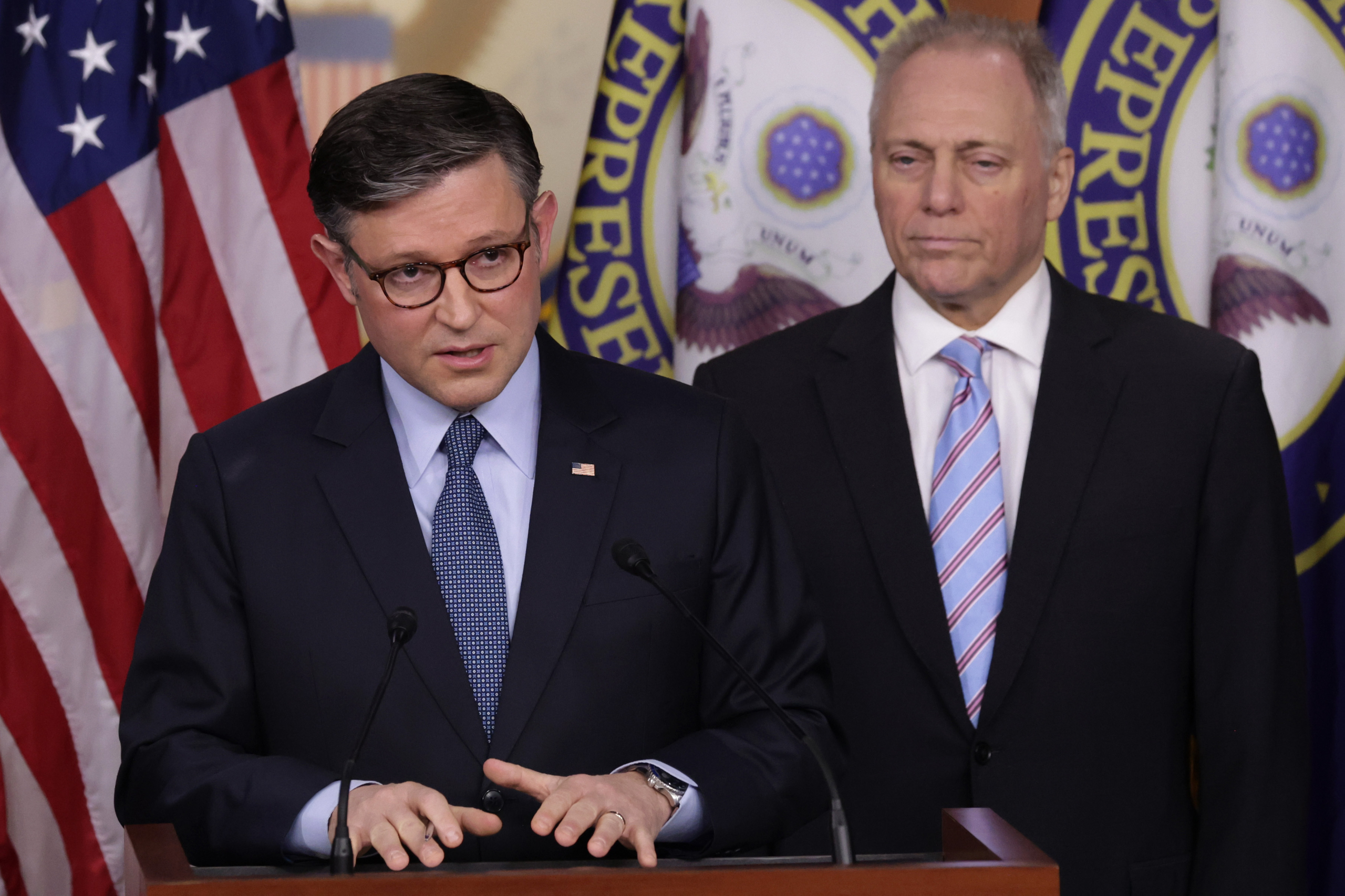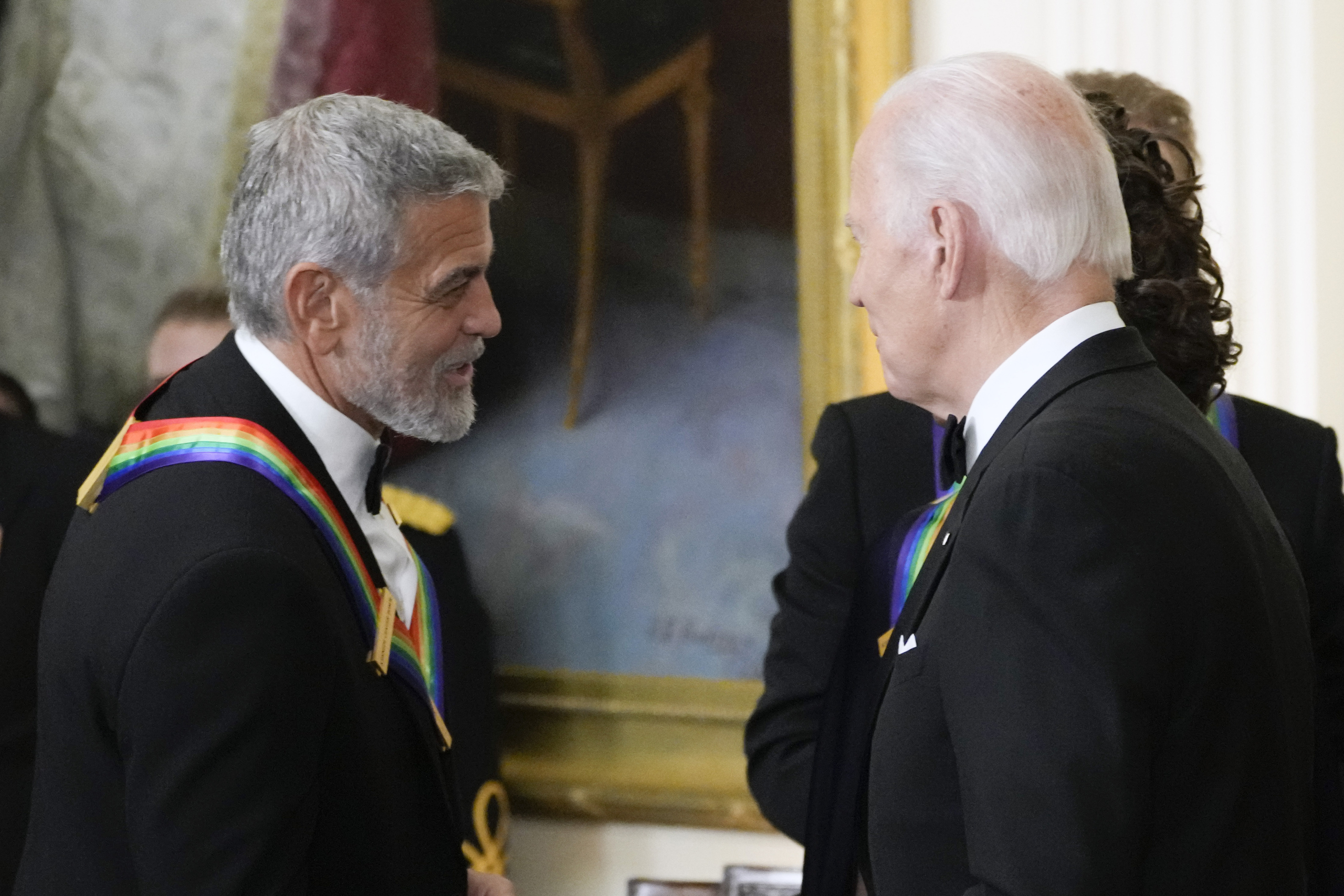By AARON BEARD AP Sports Writer
CHARLOTTE, N.C. (AP) — Jim Phillips stood in the same spot Tuesday morning that he did exactly one year earlier as he officially opened the Atlantic Coast Conference’s preseason football media days.
Only now, the message and tone is far different.
The league has successfully quelled a rebellion in the form of the lawsuits by member schools Clemson and Florida State, which represented a threat fueling doomsayers’ chatter about the league’s long-term stability. Instead, the settlement that ended the legal fight spawned a new revenue-distribution model set to benefit the league’s biggest brands. There was also ESPN’s extension on its long-running partnership with the league.
And that sends the ACC into the 2025-26 sports season with the closest thing to peace as a college landscape churning with constant change can muster.
In an interview with The Associated Press, Phillips described recent months as “the restabilization of a great league that went through a very bumpy period.” He also talked about working to “make this a league that teams want to be in, not have to be in” at the start of the revenue-sharing era.
“We’re as healthy of a league as we’ve ever been based on having to go through some really tough moments,” Phillips told the AP.
“I give our presidents/board credit for it, and I give our ADs a ton of credit for it as well. … So we’ve moved away from some of the legal issues that we’ve had and now we’ve been able to work on things that I think have been put on the backburner.”
A summer earlier, FSU, Clemson and the league were entangled in a crossfire of lawsuits over the ACC’s ability to charge hundreds of millions of dollars in exit fees for schools that leave for another league.
That came amid the backdrop of the ACC’s financial conundrum. The league annually posts record revenue hauls ($711.4 million for 2023-24, with football-playing members receiving nearly $45 million). It also keeps lagging behind the Big Ten ($928.1 million revenue, $63.1 million payout) and Southeastern Conference ($839 million, $52.6 million), though it ranks firmly third among the Power Four leagues ahead of the Big 12 ($493.8 million, $39.5 million).
Had the Clemson or FSU lawsuits proceeded, there was potential a ruling might defang the league’s exit fees. Or its grant-of-rights deal, signed by all ACC schools to give the conference control of their media rights — and the TV money that comes with them — as a deterrent to moving elsewhere.
Either could have triggered more teams to exit and chase revenue elsewhere, with the 2024 disintegration of the Pac-12 offering a worst-case harbinger.
The stakes were clear last summer when Phillips took an assertive stance that was downright pugilistic by his own measured-tone standards in promising the league would fight “as long as it takes.” He now touts a successful “reconciliation” and what he calls “a really good story about the ACC.”
“People had various opinions about how unstable it was — I never felt ever that it was going to lose its way or anything like that,” Phillips said. “It was never going to have the demise that I had heard that may happen. I never believed that for a second.
“But you have a staff that you’re dealing with. You have other schools that you’re dealing with. So to me, part of my responsibility was to be incredibly level and strong and unwavering about (how) we would get to the place that we’re experiencing now, where we have stability.”
ESPN’s decision in January to pick up its base-rights option through 2035-36 provided a key perception boost, aligning that deal’s timeline with a second covering the partnership for the ACC Network. The legal settlement followed in March, featuring a revised revenue-distribution model incorporating TV viewership as a way for top programs to make more money.
Throw in the last season’s implementation of a “success initiative” allowing teams to keep money generated by their own postseason success, and big-brand names like Clemson and FSU in football, or Duke, North Carolina and Louisville in basketball, have avenues to offset the gap with Big Ten or SEC peers.
That said, it didn’t sound like the legal fight produced constant stress at the team level.
Miami coach Mario Cristobal said he never focused on uncertainty surrounding the conference’s future, while linebacker Wesley Bissainthe and offensive lineman Francis Mauigoa said they essentially knew nothing about the lawsuits.
“I live in a cave,” Mauigoa said with a grin.
Still, reaching resolution was a welcome sign all the same.
“For me,” Virginia coach Tony Elliott said, “really to see the commissioner stand up there and have confidence and say the things he’s said just gives me confidence.”
Longer-term questions await, though. The settlement included a rollback of the ACC’s grant-of-rights provision that ensured schools would bring no TV value to a new league. It also created a schedule of declining exit fees from its current nine-figure status to $75 million for the 2030-31 season, then leveling off there through the duration of the ESPN deals.
That 2031 date would largely align with expiration of media deals for the Big Ten (2029-30 season) and the Big 12 (2030-31), while the SEC’s deal runs through 2033-34. That confluence could set up a potential countdown for massive realignment impacting all Power Four leagues, maybe even through the formation of super league.
Asked about that looming potential, Phillips could only chuckle.
“We’re trying to get through this next year,” he said, “and all the rest of it.”








